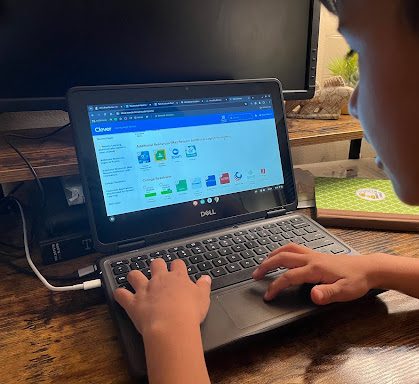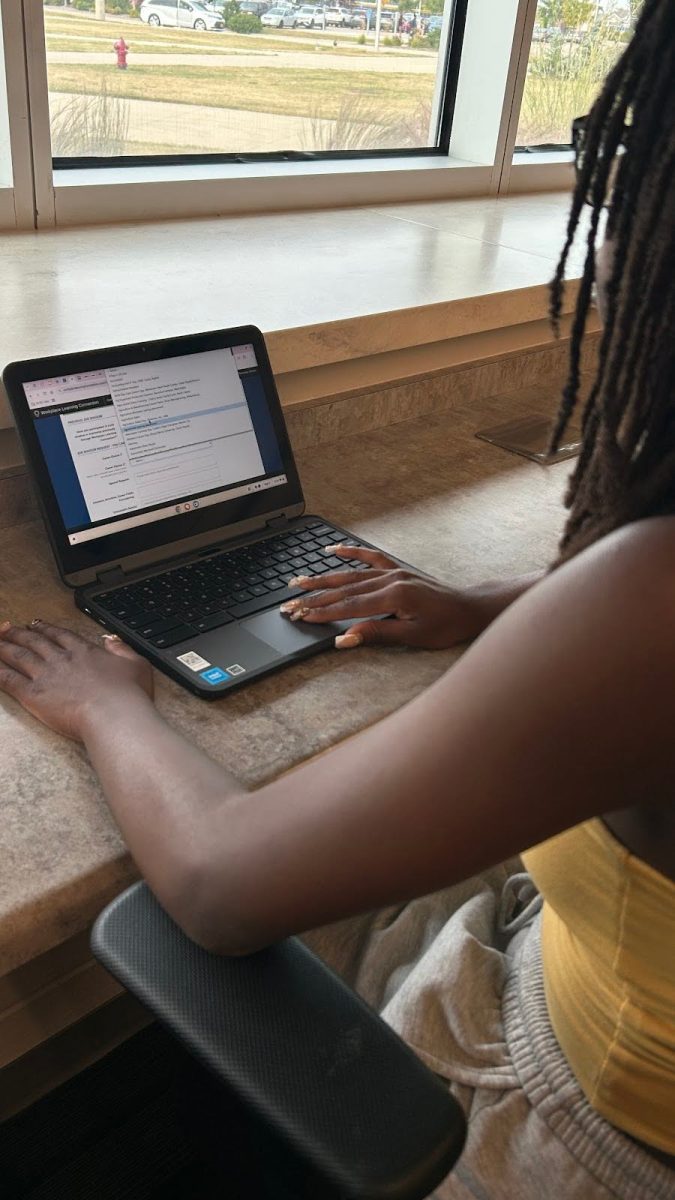
Play time is evolving. With the rise of the internet, technology is now everywhere, including in elementary school classrooms. As childrens’ time spent physically playing or getting outside decreases, so do their communication and social skills.
Asa Pelzel, 11, has noticed the rapid changes in technology. He compares his first-grade brother’s experiences to his own.
“When I started in the district, as a kindergartener, the only technology [in the classroom] was whatever Smartboard our teachers had… [and] they were just supplementary,” said Pelzel. “[Now] the Chromebook is a big part of the learning material.”
Pelzel reports that his brother takes his Chromebook home from school every day. This is a common procedure for elementary students in the Iowa City Community School District (ICCSD). Since the COVID-19 pandemic, computers have become a large part of curricula across all grade levels. Though this technology was necessary to “level the playing field” for students during quarantine, the Chromebooks have created some challenges in the classroom.
Anna Canton is in her 15th year of teaching. She currently teaches kindergarten at Coralville Central Elementary and has seen the negative impacts of technology on students’ educational attainment.
“We [educators] are noticing a lot more speech and communication issues,” said Canton. “They [students] might be learning letters faster, but it’s not very transferable or rich.”
Canton explains that the new technology makes “the mechanics of teaching” more efficient but isn’t effectively helping students learn content. In other words, technology makes classroom procedures go smoother and provides a plethora of resources, but students are ultimately having trouble applying their digital learning to real-life situations.
Students are not practicing communication skills because most of their free time is spent on screens. This lack of physical play is the probable cause of students’ poor social skills.
According to the National Health Institute, “Play can help lay a foundation for learning the skills we need for social interactions.”
Elementary educators and experts in the field both acknowledge the value of play time and the important role it plays in childrens’ development. In the ICCSD, faculty members are no exception.
“Our teacher librarian once told us… ‘it’s not only what they’re doing when they’re on the computers, but what they are not doing because they’re on the computers’ that stuck with me,” said Canton.
It is crucial for students to have time to play. Despite this necessity, schools across the nation are removing recess, a period for unstructured free time, according to Harvard’s Graduate School of Education. The ICCSD has implemented technology in the school day, but unlike other districts in the country, the district continues to encourage free play and gives students time away from their screens.
“They need to use their hands and get in things. They need to be talking to their peers and moving their bodies,” said Canton. “It’s loud and looks very chaotic… but to a kid, this is their time.”









